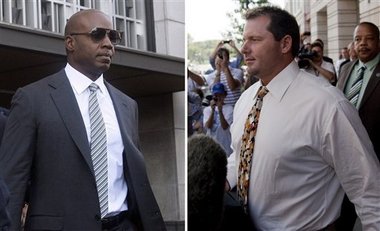By LeRoy McConnell III

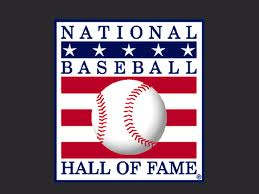
As the 2012 Baseball Hall of Fame Weekend comes upon us, we should give considerable recognition to some of the Major League Baseball veterans that have been overlooked by the Baseball Writers’ Association of America. Each year, it seems that the criteria to get inducted into the Baseball Hall of Fame is as difficult as getting you girlfriend’s father’s blessings. You have to reach benchmarks of 3,000 hits, 500 home runs or 300 wins to even be in the conversation. Don’t even get the voters started on whether or not each candidate is clean from performance enhancing drugs. I have selected nine position players worthy of immediate consideration to be the next candidates inducted into the Baseball Hall of Fame.
1B Fred “Crime Dog” McGriff 1986-2004 Tor, SDP, ATL, Tampa
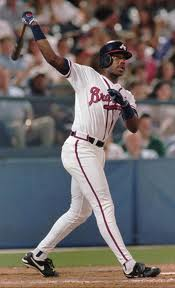
Fred McGriff was a blue-collar first basemen who brought his hard-hat and lunch pail to the game. In his 18-year career, the “Crime Dog” produced 2,490 hits, 493 home runs, 1,550 RBI and 1,305 walks. Fred didn’t hit those benchmark numbers that we mentioned earlier, but hey, he produced humanlike numbers in the steroid era and not one time was his name ever linked to the use of PEDs. McGriff was a five-time All-Star player, three-time Silver Slugger Award winner and won a World Series with the Atlanta Braves in 1995. He has been on the ballot for only three years now, but it is an embarrassment that he only holds 23.9% of the votes to get in. He needs at least 75% to reach the Hall. Hopefully the baseball writers will consider Fred McGriff as a future member of the Baseball Hall of Fame.
2B Lou Whitaker 1977-1995 and SS Alan Trammell 1977-1996, both Detroit Tigers
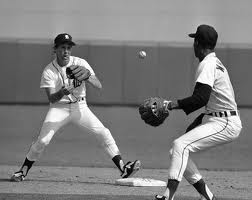
These two characters were more popular than Starsky & Hutch, Batman & Robin and Tom & Jerry! Lou & Alan have been the dynamic duo since the minor leagues. Both of them came into the Majors together and took over the starting positions for the Detroit Tigers at the start of the 1978 season. The duo spent the next 18 years turning more double plays than anyone in Major League history.
Lou Whitaker batted .276 with 244 home runs, 1,084 RBI, 1,386 runs and 2,369 hits. The second baseman was a five-time All-Star, four-time Silver Slugger Award winner, three-time Gold Glove Award winner and a World Series Champion with the Detroit Tigers in 1984. Whitaker is ranked 74th all-time in wins above replacement! The troubling part about Lou Whitaker’s situation is his stats compare to all second basemen in the Hall of Fame, but he did not receive the required five percent of the votes in his first year of eligibility. Because of that, he is no longer on the ballot.
Alan Trammell’s career batting average was .285, and he batted over .300 seven times. He hit 185 home runs with 1,003 RBI, 1,231 runs and 2,365 hits. He was a six-time All-Star, four-time Gold Glove Award winner, three-time Silver Slugger Award, World Series MVP and World Series Champion in 1984 with the Detroit Tigers. Trammell has been on the Hall of Fame ballot for eleven years now with no success. He received 36.8% of the votes, so he is still in the hunt. There is still hope, and the fact that Barry Larkin will be enshrined this year has to bring up serious considerations, as both ball players have similar numbers. Here are Larkin’s career numbers: .295 ave., 198 home runs, 960 RBI, 1,329 runs and 2,340 hits.
3B Steve Garvey AKA “Mr. Clean”1969-1987 LAD,SDP
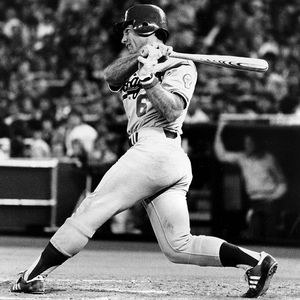
Detroit had Whitaker & Trammell, but what about the LA Dodgers? The law firm of Cey, Lopes, Russell & Garvey were the together for over eight and a half years! Garvey was both a first and third baseman, whose career batting average was .294 with 272 home runs, 1,308 RBI, 1,143 runs and 2,599 hits. He had six seasons with at least 200 hits. Steve was a 10-time All-Star, four-time Gold Glove Award winner, NL MVP in 1974, two-time MVP of the All-Star game, two-time MVP of NLCS, and World Series Champion in 1981. His 15-year run on the ballot has expired and the highest voting percentage he received was 41.6%. The only thing I see that is the problem is that his home run numbers for a corner infielder are not very high. After 1980, Garvey played eight more seasons, only hitting over 20 homers once. Nonetheless, his numbers and his accolades warrant an induction by the Veteran’s Committee.
C Ted Simmons 1968-1988 STL, MIL, ATL
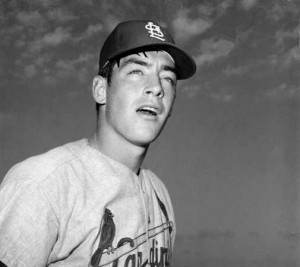
Ted Simmons played in the Golden era of catchers with Johnny Bench, Carlton Fisk and Gary Carter. Each of these players have been inducted into the Baseball Hall of Fame. Simmons was a switch-hitting catcher with a career batting average of .285. He hit over .300 seven times. Simmons had 248 home runs, 1,389 RBI, 1,074 runs and 2,472 hits. He was an eight-time All-Star and won one Silver Slugger Award. Ted didn’t have the home run numbers of Bench, Fisk and Carter, but he made up for it by having more hits and RBI. Only Ivan Rodriguez has more hits and runs batted in as a catcher. The puzzling thing about the Ted Simmons case is he never received more than four percent of the Hall of Fame votes and he is no longer on the Veteran’s Committee ballot. It’s all but a dead issue. Put Ted’s numbers against any catcher that ever played in the league and he will for sure be mentioned amongst the greats.
OF Tim “Rock” Raines 1979-2002 MON, CHW, NYY, OAK, BAL, FLA
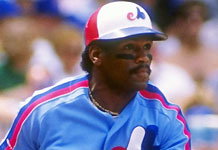 Rickey Henderson says he was “The Greatest of All Time!” He was, but Tim Raines was a five-tool ball player as well. Rock was a tremendous lead-off hitter for the Montreal Expos for years. His career batting average was .294, while batting over .300 six times. He had 170 home runs, 980 RBI, 1,574 runs, 2,605 hits, .385 on base percentage and 808 steals. Raines was also known as an excellent fielder. His accolades include being a seven-time All-Star, winning a Silver Slugger Award, a 1986 NL Batting Title, earning the 1987 All-Star MVP and being a three-time World Series Champion. Rock Raines has been on the Hall of Fame ballot for five years now and has 48.7% of the writers’ votes. There is no excuse for keeping Rock out of the Hall. Anytime a player can turn a walk or a single into a man in scoring position, he is positively making a big impact on the game.
Rickey Henderson says he was “The Greatest of All Time!” He was, but Tim Raines was a five-tool ball player as well. Rock was a tremendous lead-off hitter for the Montreal Expos for years. His career batting average was .294, while batting over .300 six times. He had 170 home runs, 980 RBI, 1,574 runs, 2,605 hits, .385 on base percentage and 808 steals. Raines was also known as an excellent fielder. His accolades include being a seven-time All-Star, winning a Silver Slugger Award, a 1986 NL Batting Title, earning the 1987 All-Star MVP and being a three-time World Series Champion. Rock Raines has been on the Hall of Fame ballot for five years now and has 48.7% of the writers’ votes. There is no excuse for keeping Rock out of the Hall. Anytime a player can turn a walk or a single into a man in scoring position, he is positively making a big impact on the game.
OF Dave “Cobra” Parker 1973-1991 PIT, CIN, OAK, MIL, CAL, TOR
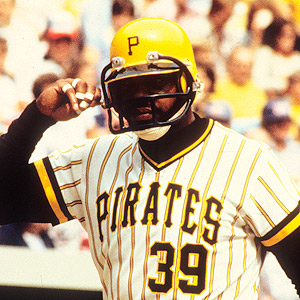 The “Cobra” had the biggest shoes to replace when the legendary Roberto Clemente’s unfortunate plane crash occurred after the ’72 season. He did not disappoint as he made a living as the Bucs right fielder for the next 10 seasons. Everybody that was a baseball fan in the seventies remembers the ’79 “We Are Family” Pirates. His batting average was .290 with 339 home runs, 1,493 RBI, 1,272 runs and 2,712 hits. He was a seven-time All-Star, three-time Gold Glove Award winner, three-time Silver Slugger Award winner, a two-time NL batting champion, 1978 NL MVP, 1979 All-Star MVP and two-time World Series Champion. Dave Parker was the game’s best player in the late seventies and early eighties, which led him to be the first Major League ball player to have a million dollar contract. Parker had been part of a cocaine scandal, where he admitted to use of drugs, which may have cost him an MVP award in a season where he led the league in hits and batting average. Dave never received more than 24.% of the votes from the baseball writers and his eligibility has now run out. He still has hopes of getting in by the Veteran’s Committee.
The “Cobra” had the biggest shoes to replace when the legendary Roberto Clemente’s unfortunate plane crash occurred after the ’72 season. He did not disappoint as he made a living as the Bucs right fielder for the next 10 seasons. Everybody that was a baseball fan in the seventies remembers the ’79 “We Are Family” Pirates. His batting average was .290 with 339 home runs, 1,493 RBI, 1,272 runs and 2,712 hits. He was a seven-time All-Star, three-time Gold Glove Award winner, three-time Silver Slugger Award winner, a two-time NL batting champion, 1978 NL MVP, 1979 All-Star MVP and two-time World Series Champion. Dave Parker was the game’s best player in the late seventies and early eighties, which led him to be the first Major League ball player to have a million dollar contract. Parker had been part of a cocaine scandal, where he admitted to use of drugs, which may have cost him an MVP award in a season where he led the league in hits and batting average. Dave never received more than 24.% of the votes from the baseball writers and his eligibility has now run out. He still has hopes of getting in by the Veteran’s Committee.
OF Albert Belle 1989-2000 CLE, CHW, BAL
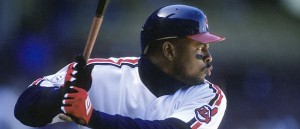 Belle’s production makes him a sure-fire Hall of Famer. His career batting average is .295, while batting over .300 four times. He had 381 home runs, 1,239 RBI, 974 runs and 1,726 hits in 12 seasons. His career ended abruptly with a degenerative hip. He was a five-time All-Star and five-time Silver Slugger Award winner. In 1995, Belle was the only player in Major League history to hit 50 home runs and 50 doubles in a season. He lost the MVP to Mo Vaughn, whose numbers did not compare to Albert’s, and that is probably because of his reputation being a jerk with the media. In a three-year span, he finished in the top three in the MVP race never to win. Albert lost his eligibility after the first year by only receiving 7% of the votes. As long as the Baseball Writers’ Association of America have anything to do with Albert getting in the Hall, IT WILL NEVER HAPPEN! Albert Belle may very well be the most hated baseball player ever, but in those 12 seasons in the league, he was definitely the most feared.
Belle’s production makes him a sure-fire Hall of Famer. His career batting average is .295, while batting over .300 four times. He had 381 home runs, 1,239 RBI, 974 runs and 1,726 hits in 12 seasons. His career ended abruptly with a degenerative hip. He was a five-time All-Star and five-time Silver Slugger Award winner. In 1995, Belle was the only player in Major League history to hit 50 home runs and 50 doubles in a season. He lost the MVP to Mo Vaughn, whose numbers did not compare to Albert’s, and that is probably because of his reputation being a jerk with the media. In a three-year span, he finished in the top three in the MVP race never to win. Albert lost his eligibility after the first year by only receiving 7% of the votes. As long as the Baseball Writers’ Association of America have anything to do with Albert getting in the Hall, IT WILL NEVER HAPPEN! Albert Belle may very well be the most hated baseball player ever, but in those 12 seasons in the league, he was definitely the most feared.
DH Edgar Martinez 1987-2004 Seattle Mariners
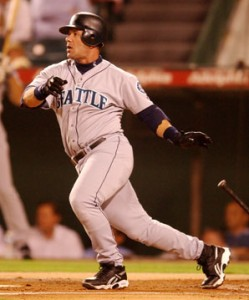
To all the beat writers who have a vote in the HOF: The designated hitter has been part of the game since the 1973 baseball season. During his playing career, Edgar Martinez was the greatest designated hitter of his time. His lifetime batting average sits at .312 with 10 years batting over .300. He has 309 home runs, 1,261 RBI, 1,219 runs and 2,247 hits. Only David Ortiz’s numbers are better. Martinez was a seven-time All-Star, five-time Silver Slugger Award winner and two-time AL Batting Champ. Edgar has received 36.5% of the votes in his third attempt. He is for sure a candidate and the first designated hitter to be enshrined. He was a ferocious hitter in that Mariners line-up that consisted of Griffey, Buhner and A-Rod. Don’t punish Edgar Martinez because he was a DH. Major League Baseball recognizes the position and so should Baseball Writers’ Association of America.
Pitcher Jack Morris 1977-1994 DET, TOR, MIN, CLE
 Known as the winningest pitcher of the 80′s, the workhorse posted 254 career wins, 2,478 strikeouts, an era of 3.90, 175 complete games and 28 shutouts in eighteen years of service. Morris is a five-time All-Star and three-time World Series Champion. He earned the MVP Award of the 1991 World Series. In Game 7 of that series, Morris posted a 1-0 win in a 10 inning shutout against the Atlanta Braves. Jack has been on the ballot for 13 years now, finishing with 66.7% of the votes and second to only Barry Larkin who will be inducted in 2012. With the likes of Clemens, Bonds, Palmeiro, Bagwell, Sosa, Piazza and Biggio, it will be difficult for Morris to get the final 8% votes. Then again, with some of the most dominating players of all-time having a black cloud over their heads, Jack Morris may be having his own party next July.
Known as the winningest pitcher of the 80′s, the workhorse posted 254 career wins, 2,478 strikeouts, an era of 3.90, 175 complete games and 28 shutouts in eighteen years of service. Morris is a five-time All-Star and three-time World Series Champion. He earned the MVP Award of the 1991 World Series. In Game 7 of that series, Morris posted a 1-0 win in a 10 inning shutout against the Atlanta Braves. Jack has been on the ballot for 13 years now, finishing with 66.7% of the votes and second to only Barry Larkin who will be inducted in 2012. With the likes of Clemens, Bonds, Palmeiro, Bagwell, Sosa, Piazza and Biggio, it will be difficult for Morris to get the final 8% votes. Then again, with some of the most dominating players of all-time having a black cloud over their heads, Jack Morris may be having his own party next July.
LeRoy McConnell III of “A Fan’s Point of View”, for War Room Sports
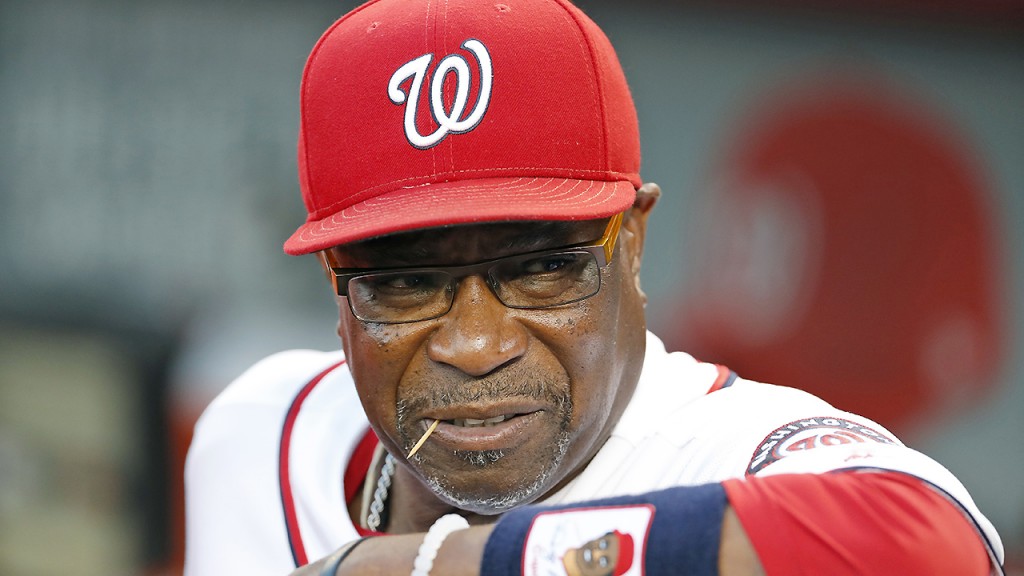



















![jameswilliamsblog[1]](http://warroomsports.com/blog/wp-content/uploads/2011/06/jameswilliamsblog1.jpg)
